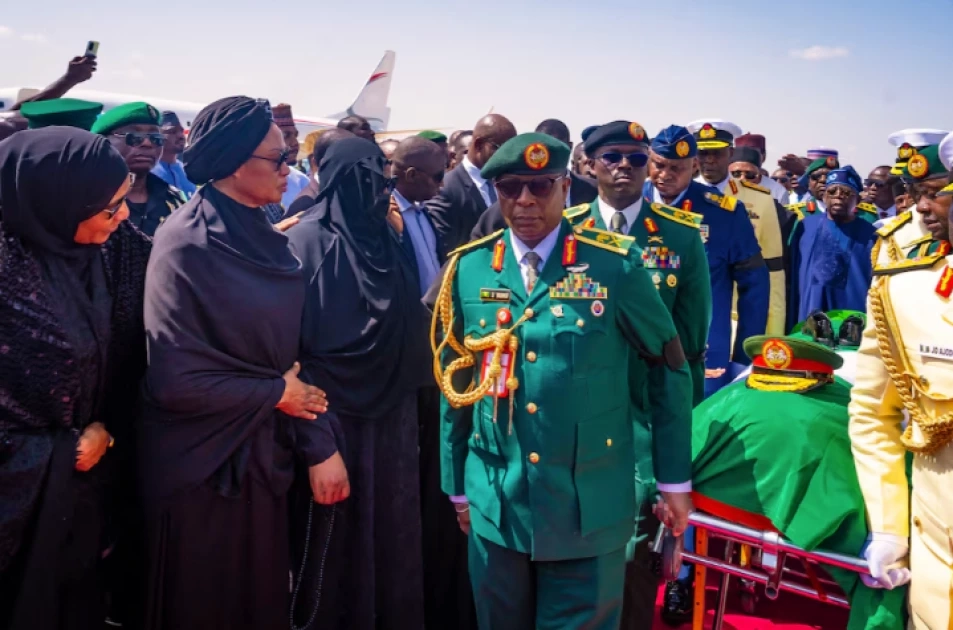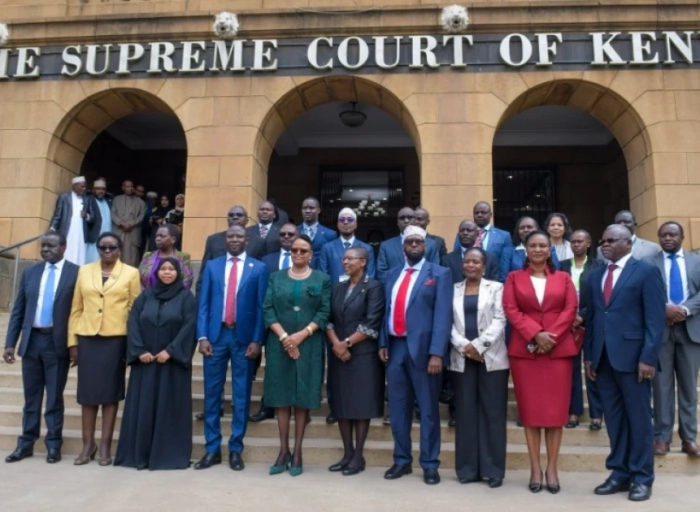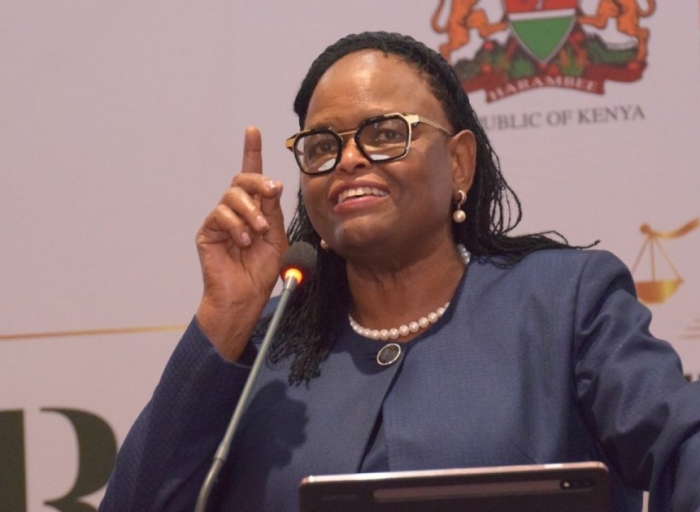Nigeria laid to rest its former president, Muhammadu Buhari, on Tuesday in his hometown of Daura, Katsina State, following his death in a London hospital on Sunday at the age of 82. A deeply symbolic figure in Nigerian history, Buhari was buried in the backyard of his private residence as thousands of mourners, some perched on trees, gathered for a final glimpse of the man they fondly called “Sai Baba.”
Buhari served as Nigeria’s civilian president from 2015 to 2023, after having first led the country as a military ruler in the 1980s. He was one of the few Nigerian leaders to have governed both by the barrel of the gun and through the ballot box, returning to power via democratic elections after decades in political wilderness.
His casket, adorned with Nigeria’s green and white flag, was received at the Katsina airport by President Bola Tinubu and top government officials, where a military parade and a 21-gun salute were held in his honor. From there, it was transported to Daura for a more intimate burial ceremony in line with Islamic traditions.
In a show of national mourning, President Tinubu declared a seven-day period of remembrance and a public holiday on the day of Buhari’s burial.
Buhari’s presidency was marked by a mix of stern leadership and controversial legacies. While praised for his disciplined, austere lifestyle and vocal stance against corruption, critics noted that few convictions followed his anti-graft rhetoric. His time in office also saw economic hardships, currency instability, declining oil revenues, and widespread insecurity across Nigeria.
Despite these challenges, Buhari maintained a strong base of support in northern Nigeria, where many viewed him as a symbol of integrity and patriotism.
As Nigeria reflects on his complex legacy, Buhari’s death marks the end of an era — that of a soldier-turned-politician whose influence on the country’s modern history remains profound.




